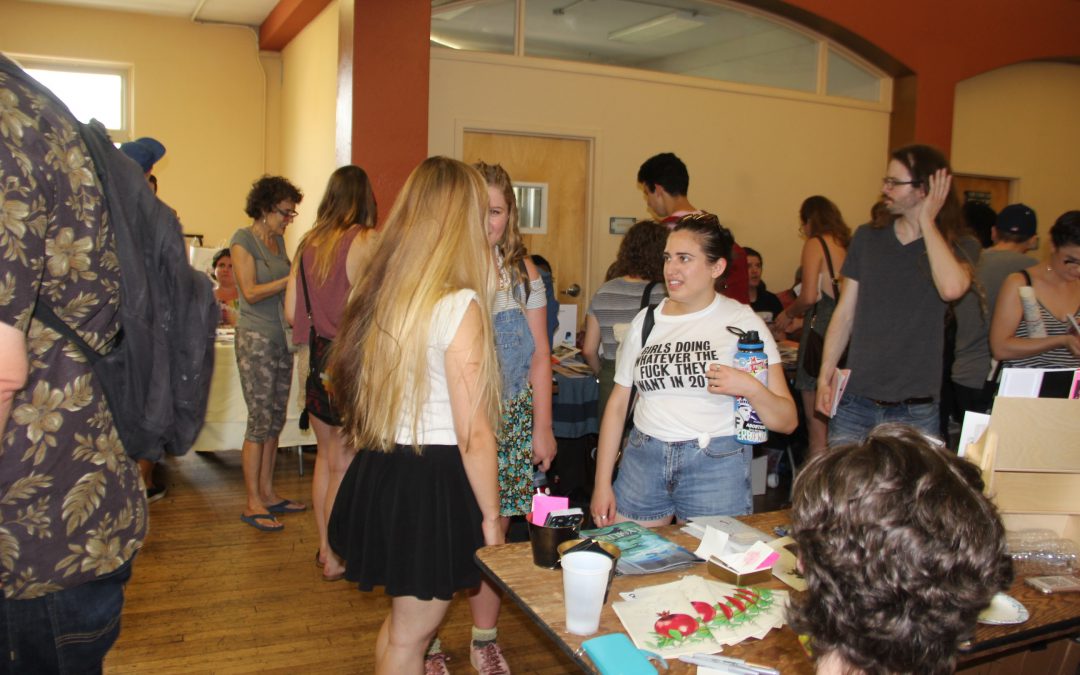WASHINGTON — “Zinesters” are doing everything they can to express themselves. Whether they showcase lapel pins shaped like oranges with “Queer Cutie” written on them or display stickers that read “Boys Lie”–zinesters are creating their own world.
Zinesters create self-publications, oftentimes text and drawings on paper that is photocopied and stapled together, motivated by a desire for self-expression, not for profit, according to the Barnard College Zine Library in New York City.
Dozens of zine creators gathered Saturday at St. Stephen & the Incarnation Episcopal Church in Washington for the 2017 D.C. Zinefest. Sixty zine vendors participated, selling their creations to patrons who walked about the crowded exhibit room looking for zines that spoke to them.
The Bettys are one zine group. They are creating feminist, expressionist art, such as zines with the titles: “SpaceBae” and “Feeling Myself.” The Bettys, who describe themselves as a tristate art collective in the New York area, want to “become a platform for vibrant human beings that identify as LGBTQ/POC/women.”
“This is a big party for zines,” said Jeff Okun-Kozlowicki, organizer of the D.C. Zinefest for the last three years. “It’s a lot different to read a comic or an essay on your phone or computer as to hold something in your hands. … [The] tendency of folks towards a customized or artisanal [product] that feels special and a little more personalized than mass-produced. Zines fit into that.”
Zines about wrestling, mental health, comic books and many other topics were on display.
“You can find zines about so many different things at D.C. Zinefest,” said Luke Stacks, an organizer for the last two years.
Stacks said that some of the exhibiters had been to the festival before, but others were participating for the first time.
“Labors of love but there’s a startup cost to them,” Stacks said. “Even if you have to go to a printer to print out copies … there’s a bunch of things that people discover for the first time.”
Zine festivals are attracting sellers and shoppers around the country, in New York City, Chicago, Portland, Salt Lake City and dozens more, and around the world.
“They are this really wonderful place of coming together. … Zine makers are these introverts. Most of the time you are making zines by yourself,” said Jenna Freedman, associate director of communications and zine librarian at Barnard College. “[Festivals are] a place to build community and give life to it. There is really a lot of love between zine makers.”
Zines and the zine community aren’t just about the physical events; the community has taken off online as well. Zines appear on social media platforms such as Instagram and through online payment platforms such as Etsy, where zines can be sold. Zines are transcending zinesters’ own worlds.
“[Zines are] more than just self-expression because there is that politics and community element,” Freedman said. “Zinemakers are choosing to make a zine and are choosing to be outside the mainstream.”






